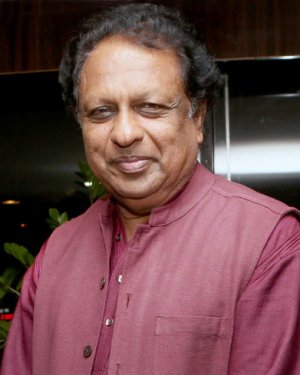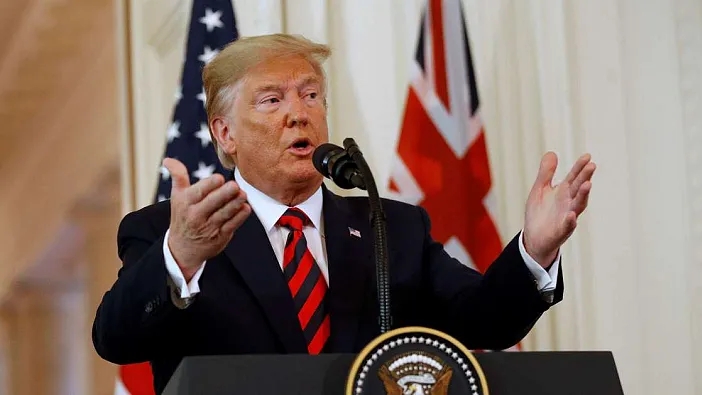
An Election Stunt Which May Go Awry

“Our president will start a war with Iran because he has absolutely no ability to negotiate...So the only way he figures he’s going to get re-elected, and as sure as you’re sitting there, is to start a war with Iran”. If that was the prediction that Donald Trump made about Barack Obama in 2011, that thought may not have been far from his mind when he found himself on the eve of his own election and the Senate trial on impeachment in 2020. Maj Gen. Qassem Suleimani had already been declared an international terrorist and he was as good a target as any for a calculated risk. An attack on the US Embassy in Baghdad on the New Year night was a perfect alibi to kill him and six others in a drone attack near Baghdad airport inflicting a major loss to Iranian strategy in the Middle East.
General Suleimani was Iran’s most powerful security and intelligence commander, a leader of its elite Revolutionary Guards’ Quds Force, the foreign operations branch of the dirty tricks department of the country’s powerful security apparatus.
Reporting only to the supreme leader, he worked closely with Iraqi and Lebanese allies, nurturing proxy forces throughout the region to support President Bashar al-Assad of Syria, and later to fight against the Islamic State. After he was killed, the Pentagon said that General Suleimani was planning attacks on American diplomats and service members.
A day after the attack and the Iranians pledged harsh vengeance, President Trump told reporters that the airstrike had been ordered “to stop a war, not to start one”. He said the United States was not seeking regime change in Iran, but called for an immediate end to Tehran’s “aggression in the region.”
He claimed that General Qassem Soleimani had killed or badly wounded thousands of Americans over an extended period of time, and was plotting to kill many more, but got caught! He was directly and indirectly responsible for the death of millions of people, not only in the Middle East, but also from New Delhi to London, the President said. This has embarrassed India as India has not accused Iran of terrorist acts in India. The President was probably speaking of the reach of Suleimani’s terrorist activities.
Inside the United States, the Republicans justified the President’s action, while the Democrats called the attack a reckless escalation. As Trump had wanted, foreign policy came to the forefront of the election debate. Internationally the line-up was on expected lines and the criticism was not too harsh except from the hardcore supporters of Iran.
Iran has pledged harsh vengeance as the nation plunged into grief over the assassination of its national hero. But no war is expected because of the obvious military imbalance. More likely will be a major terror attack on US personnel and installations in the Middle East with maximum damage in a swift attack. Some even believe that Iran might just keep threatening action till the Presidential elections to keep the Americans on tenterhooks. Once the threat is carried out, it might lose its potency.
The Washington Post argues that Iran’s instinct for self -preservation would not permit it to a reckless adventure against the US. It would await an appropriate opportunity for a strike or simply decide that discretion is the better part of valour.
On the other hand, Iran might decide to act quickly to avenge the assassination of Suleimani. It is quite possible that the new alliance between Iran and Iraq might lead to an attack on American interests and personnel within Iraq itself. It is this possibility that prompted the US to ask all their nationals to leave Iraq forthwith. Iraq has been complaining about the US soldiers violating its sovereignty. This is a far cry from the days when the US virtually took over Iraq after the two Gulf wars. A second air strike on pro-Iranian elements in Iraq was to pre-empt any action against the US on Iraqi soil.
The immediate consequence of the assassination was the rise in prices of oil and gold. More problems may be in the offing depending on the nature of retaliation and the damage it inflicts on the neighbouring countries. The assassination has increased tensions in a region which was already volatile on account of the many rebellions in the area. The crucial question is whether the US attack will act as a deterrent against escalation or plunge the region into more chaos. Military strategists believe that the decision to kill Suleimani was an impulsive decision of the President without a study by the security agencies of the US, who have been following Suleimani for a long time. The gamble will pay off if Iran will refrain from inflicting unacceptably harsh damage to the assets of the US in the region.
Confrontation between the US and Iran has always been a difficult issue for India, which has major interests in both the countries. Both of them have been urging India to play a positive role, but India is not privy to the plans of either of them. India has already been dragged into the latest scuffle by the President’s reference to New Delhi as a target of Iranian intelligence under Suleimani. But India is unlikely to be proactive in this case and simply remain alert to the consequences of a wider war to our interests in the Gulf.
Mercifully, the possibility of Russia, China, Israel or Saudi Arabia getting involved militarily is remote. But they will exert influence in both the US and Iran to contain the confrontation. If President Trump’s objective is limited to winning the elections, he himself will be amenable not to escalate the situation further. But this a gamble, which is likely to go awry at any moment. The gunfire in Baghdad early in 2020 is a sure sign that it is going to be a difficult year for the world
